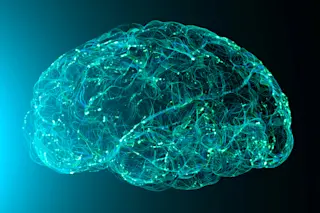An area of the brain called Heschl’s gyrus — long known for handling early auditory processing — plays a far greater role in interpreting speech than previously understood. It helps interpret the meaning behind subtle changes in pitch, tone, and emphasis into meaningful information, according to a recent study published in the journal Nature Communications.
Scientists had long thought that deciphering those qualities — collectively known as prosody — happened in the superior temporal gyrus, an area of the brain associated with speech perception. But experiments that monitored epileptic patients’ brains now challenge those assumptions.
A rare set of circumstances led to the discovery. As part of treatment for severe epilepsy, 11 adolescent patients had electrodes implanted deep into the part of the brain that is critical for key language function. The surgeries and experiments took place at the University of Pittsburgh School of Medicine. It represented a close collaboration ...














